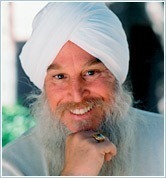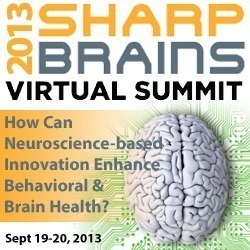Dharma Singh Khalsa: Why are yoga and meditation often overlooked for healthy brain aging?

Dharma Singh Khalsa, MD
What is your current job title and organization, and what excites you the most about working there?
As the Founding President and Medical Director of the Alzheimer’s Research and Prevention Foundation (ARPF), what excites me leading the way in cutting edge research on the beneficial, anti-aging effects of yoga and meditation on cellular health, brain function and, specifically, memory.
Please tell us about your interest in applied brain science. What areas are you most interested in? What motivated you to pursue work in your field?
What interests me the most is how life style influences brain health during aging. What motivated me was my lifelong interest in holistic medicine and my 35 years of practice and study of stress, meditation, and memory. I’ve looked at it from both sides; I’ve studied mind/body medicine with Dr. Herbert Benson at Harvard and Kundalini Yoga withYogi Bhajan.
What is one important thing you are working on now, and where can people learn more about it?
Perhaps the most promising area we fund and study is about the effects on brain and memory of a simple 12 minute yoga meditation called Kirtan Kriya. Currently we have studies looking at how this meditation may efficiently improve capacity and slow the progression of Mild Cognitive Impairment into Alzheimer’s Disease. Best place to learn more is the research section in our website.
What are 1–2 key things you’d like every person to understand regarding his/ her own brain and mind, that you think is commonly misrepresented or not addressed in the popular media?
1. Drugs are not the answer. 2. Yoga and Meditation are underappreciated as a way to keep your brain sharp with age. They belong in the conversation with diet, exercise and so on. It has been revealed that meditation not only has multiple positive effects on your brain and help reverse memory loss but is also the fastest and deepest way to create psychological and spiritual well-being, a critically important feature of healthy brain aging. It’s easy and more people must seek it out.
Where do you see clear “low-hanging fruit” to enhance behavioral and brain health based on neuroscience and innovation
It is actually quite simple: put your brain health first. We shouldn’t wait until a problem arises to try and fix it.
What would you like the 2013 SharpBrains Virtual Summit to accomplish?
I expect the Summit to continue providing leadership and inspiration cutting across many traditional silos, helping discuss and advance the many approaches that are becoming available to promote brain longevity.
Finally, what do YOU do to stay sharp?
I make my health my number 1 priority. I try and eat well with a plant based diet. I exercise 4–5 X a week; both cardio and weights etc. I do yoga and meditation every morning. I have a rich spiritual life. I read what interests me and share my work. I take various supplements. I spend time and give love to my family and friends and have fun with my grandson.
And finally, I never stop searching for meaning and purpose in life.
 —This conversation is part of a new interview series with Speakers and Participants in the upcoming 2013 SharpBrains Virtual Summit (September 19–20th). You can register with a 20% discount using promotional code: sharp2020
—This conversation is part of a new interview series with Speakers and Participants in the upcoming 2013 SharpBrains Virtual Summit (September 19–20th). You can register with a 20% discount using promotional code: sharp2020


